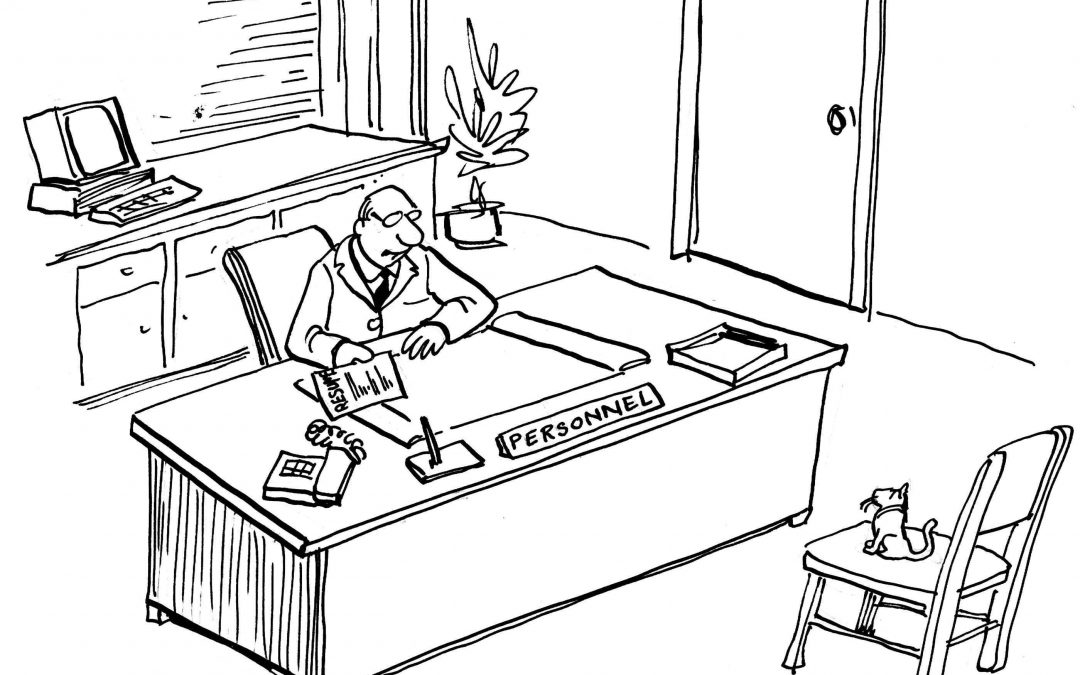Take a second to answer the below questions.
- Are you human?
- Does your heart beat?
If you answered yes to both questions, chances are you stink at both sides of interviewing. And you’re not alone. Interviews are unnatural. They aren’t normal for human physiology. They’re not a normal part of our human interactions. They weren’t a normal feature of any human society, anywhere on the planet, prior to about 100 years ago. They are deeply strange experiences for a wide variety of reasons, the first being they reveal very little about the human opposite you.
I’m not an organizational psychologist, nor do I hold a degree in anything remotely related to human resources. But I’ve been a hiring manager at places like Amazon, the University of Washington, Politico, and Microsoft for more than 20 years. With few exceptions, I’ve been routinely disappointed by the inane pedestrianism of interview questions. I’m bored asking them, and I’m bored answering them.
When I opened my own comms shop 10 years ago, I had an opportunity to interview differently. Over the years, I’ve developed an eagle eye for spotting diamonds in the rough. Here’s what I’ve learned to avoid.
Mistake 1. The first mistake is asking the wrong kinds of questions. Some questions are just too easy to fake. What’s your greatest weakness? Even Michael Scott, the inept manager in the TV show “The Office,” aced that one: “I work too hard. I care too much.” Other questions reveal more about the manager who’s asking than the candidate who’s responding. How many wolves could fit in Lumen Field? Brainteasers are for predicting job performance and identifying sadistic managers who seem to enjoy stumping people.
We’re better off asking behavioral questions. Tell me about a time when …. Past behavior can help us anticipate future behavior. But sometimes, they’re easy to game, especially for candidates with more experience. We can get around those issues by including some situational questions. What would you do if . . . Pick a challenge that’s important for success in the job and your culture, and we can learn something valuable about how candidates will lead, handle conflicts, and solve problems.
Mistake 2. We focus on the wrong criteria. Managers often favor people who went to the same school or share their love of football. Across industries and occupations, economists find that even when candidates’ résumé are identical, those with white-sounding names like Allison and Matthew get 50% more callbacks than those with African-American-sounding names like Lakisha and Jamal. There’s evidence that birthmarks, being pregnant and being overweight can put candidates at a disadvantage. And believe it or not, bald men are seen as having more leadership potential if they shave their heads.
Neurodivergent folks often have difficulty in interviews as well. Neurodivergent brains work a bit differently, but that shouldn’t be considered a deficit. Neurodiverse thinkers are often wickedly creative problem-solvers and true diamonds in the rough. I recommend reading The Power of Neurodiversity: Unleashing the Advantages of Your Differently Wired Brain as a primer to understanding how neurodivergence can be an enormous asset in entrepreneurial environments.
We can overcome some of these biases with structured interviews: identifying the key skills and values in advance, and then creating a standard set of behavioral and situational questions to ask every candidate. Although it might sound boring and robotic, it can double or even triple managers’ accuracy in predicting job performance. We can even build an answer key by posing questions to our existing employees and seeing how star performers answer them differently.
Constantly ask yourself if you’re focusing on the right criteria.
Mistake 3. Job interviews favor the candidates who are the best talkers. When college seniors show up for interviews, over 90% stretch the truth to make a better impression and improve their odds of getting the job. I think Chris Rock put it best: “When you meet somebody for the first time, you’re not meeting them. You’re meeting their representative.”
My favorite antidote to faking is to focus less on what candidates say, and more on what they do. Invite them to showcase their skills by asking for a work sample — a real piece of work that they produced.
And the most important remedy to Mistake 3: take the person out to lunch and watch what they do, not what they say. Credentials are overrated, and motivation is underrated. It doesn’t matter how much experience people have if they treat the server poorly, look at their phone too often, or are highly persnickety with an air of ingratitude about their meal. You can find out more about someone in 20 minutes of observation than three hours of talking.

